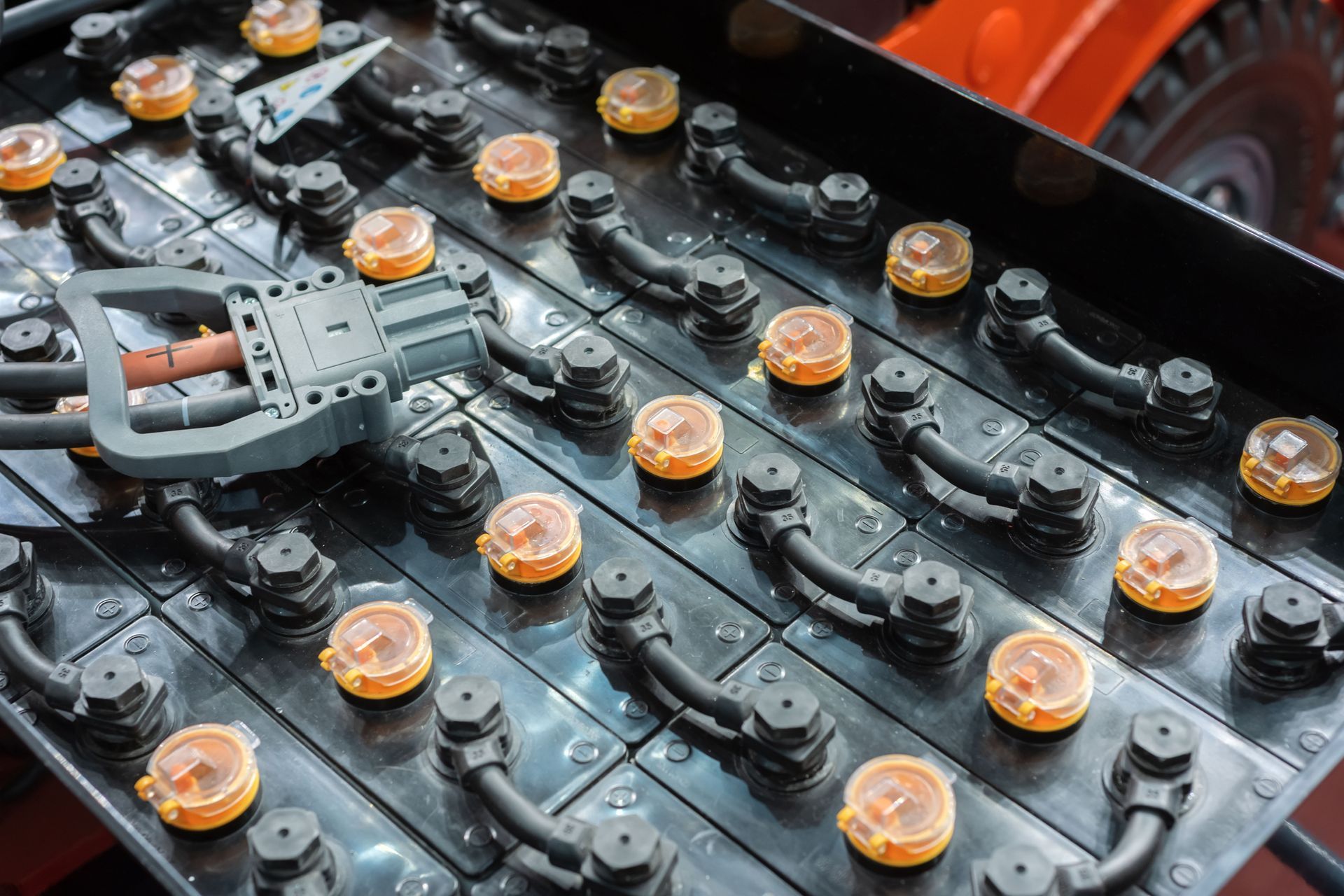6 Signs You Need Golf Cart Service
Golf carts have become an indispensable element for both golfers and course operators, ensuring smooth and easy transportation across expansive golf courses. Despite their robust design, golf carts, much like other vehicles, require consistent upkeep to maintain their performance and longevity. In this article, we will delve into the critical signs that might indicate that your golf cart is due for professional service.
Recognizing these signs early can save you from incurring significant repair costs and also enhance the lifespan and safety of your golf cart. From peculiar noises to electrical problems, we'll explore a comprehensive checklist of symptoms that should prompt immediate attention and golf cart service. Timely maintenance not only preserves your investment but also guarantees a seamless golfing experience.
As we explore each sign in detail, it's essential to remember that ignoring these symptoms could lead to more severe issues over time. Recognizing these indicators can equip you with the knowledge to act proactively. Maintenance isn't just about fixing problems; it's about preventing them from occurring in the first place.
Unusual Noises
Noises emanating from your golf cart are often early warning signals that something is amiss. Squeaking or creaking sounds might originate from loose parts or worn-out bushings and can often be remedied by tightening components or lubricating parts. Grinding noises, often associated with the motor or brakes, suggest that parts might be rubbing together improperly, which can lead to extensive damage if left unchecked.
Clicking sounds during turns can indicate problems with steering mechanisms or worn-out CV joints, while rattling from underneath might be due to loose or broken components such as the exhaust system or suspension. Additionally, a whirring or buzzing motor sound can signify that motor bearings are failing or that there is debris lodged within the motor components. Each of these sounds requires specific attention and diagnosis by a professional for proper golf cart service.
Addressing noise issues early can prevent further damage, and it might be as simple as tightening a bolt or as complex as replacing a component. According to Golf Expert Blog, approximately 80% of the battery power of an electric golf cart is converted into motion. Listening to your cart and detecting unusual noises is a practical step in ensuring your golf cart runs optimally.
Decreased Battery Performance
The battery serves as the powerhouse for electric golf carts, and any sign of decreased performance can drastically hinder the vehicle's usability. Shortened battery life might point to a deteriorating battery that can no longer hold a charge effectively. This aging process, if not addressed, could lead to a scenario where the battery fails entirely.
Longer charging times are another red flag, indicating either the battery isn't accepting charge efficiently or there are issues with the charging system itself. Frequent battery drain, which might stem from parasitic loads or improper battery maintenance, can leave you stranded unexpectedly. Corrosion on battery terminals can also impede the flow of electricity, further degrading performance.
Difficulty maintaining a charge could mean it's time for either a battery replacement or a deeper inspection of the charging infrastructure. Regular checks and maintenance of batteries are vital for smooth golf cart service.
Trouble Starting
Starting issues can range from minor inconveniences to signs of significant underlying problems. Delayed ignition, where the engine struggles to turn over, might suggest weak battery connections or an inadequate power supply. Total ignition failure hints at potential electrical issues or a completely drained battery, which could require immediate servicing or replacement.
Frequent stalling indicates that power delivery is inconsistent, possibly due to faulty wiring, a malfunctioning controller, or fuel system issues in gas-powered carts. Inconsistent power delivery can lead to jerky movements and unpredictable starts, compromising both performance and safety. Moreover, dashboard warning lights are invaluable indicators of trouble, alerting you to specific issues needing professional evaluation.
Each of these symptoms necessitates exploring the root cause, whether electrical or mechanical. Ignoring these starting troubles could potentially escalate into more significant issues. Proactive troubleshooting and golf cart service, guided by the signs presented in dashboard diagnostics, can ensure your golf cart remains reliable and efficient on and off the course.
Steering or Handling Issues
Steering or handling difficulties can transform the experience of driving a golf cart from pleasant to perilous. A loose steering wheel may seem innocuous but often masks deeper issues such as worn steering components or loose bolts. Difficulty turning, which can stem from low steering fluid or mechanical obstructions, could cause delayed or erratic navigation.
Drifting or pulling to one side while driving suggests wheel misalignment, tire pressure discrepancies, or problems with the steering columns. Vibrations while driving can originate from several sources, such as unbalanced tires, axle issues, or worn suspension components. Finally, unresponsive steering, where inputs do not translate into action, implies severe steering system faults requiring immediate professional assessment.
Given the importance of precision and control, addressing handling issues swiftly is crucial for safety. Ensuring the steering mechanism is sound enhances driver confidence and prevents more severe issues from arising. Regular monitoring and golf cart service of the steering system can ensure your golf cart offers a smooth and controlled ride throughout its lifespan.
Brake Malfunctions
Brakes are essential for safety, and any malfunctions should be addressed without delay. Insufficient braking power can result from worn-out brake pads or malfunctioning brake calipers, drastically increasing stopping distances. Squealing or grinding noises during braking are immediate red flags, indicating that brake components are worn or rubbing against each other improperly.
A soft or spongy brake pedal might be a sign of air in the brake lines or a failing master cylinder, compromising stopping efficiency.
Uneven or violent stopping indicates pressure imbalances within the braking system or issues with the brake rotors. Brake warning lights, akin to dashboard signals, provide crucial insights into specific brake system failures needing urgent attention.
Failure to address brake issues can exponentially increase the risk of accidents. Thus, regular brake inspections are an indispensable part of golf cart service, ensuring all components function correctly. A focus on brake efficiency not only safeguards passengers but also contributes to the longevity of the vehicle itself.
Electrical Problems
Electrical systems in golf carts are complex, with problems often manifesting subtly before becoming evident. Flickering lights may indicate weak or faulty wiring or battery issues, while non-functional accessories are a clear sign of electrical circuit malfunctions. Blown fuses, indicative of overloading or short circuits, should be replaced promptly and followed by a diagnosis to prevent recurrence.
Faulty wiring can lead to a myriad of problems, from unpredictable power deliveries to complete system failures. An inoperable horn, while seemingly minor, is often a symptom of a broader electrical malfunction that could affect multiple systems. Properly functioning electrical components are crucial since they directly influence reliability and safety.
A robust electrical system ensures your golf cart operates at its peak, providing consistent power output. Regular inspection of electrical components, focusing on wiring integrity and system efficiency, is vital for effective golf cart service.
The longevity and performance of your golf cart hinge on proactive maintenance and a keen awareness of emerging issues. By recognizing the signs outlined above, you can ensure timely intervention and avoid costly repairs. Regular professional golf cart service not only preserves your investment but also guarantees a safe and enjoyable experience on every outing.
Ultimately, proper golf cart service keeps our golf cart performing at its peak. By staying on top of service schedules, addressing issues early, and relying on experienced technicians, we can enjoy a smooth, reliable ride every time. For expert care and tips to extend our cart’s lifespan, learn more with Southern Golf Kartz.




Share On: